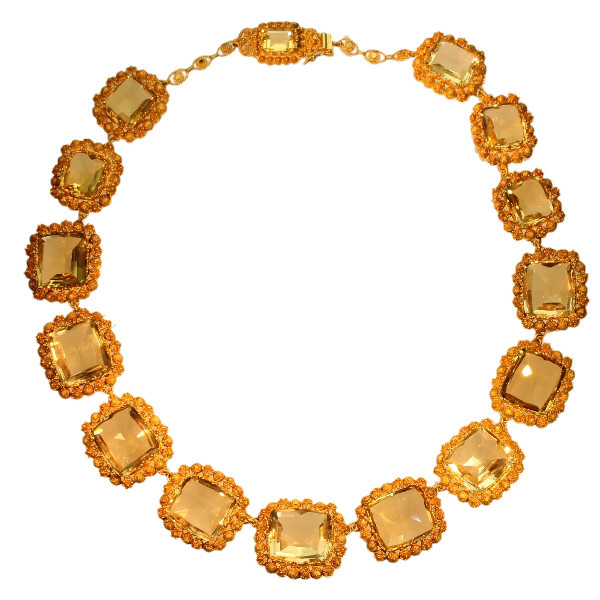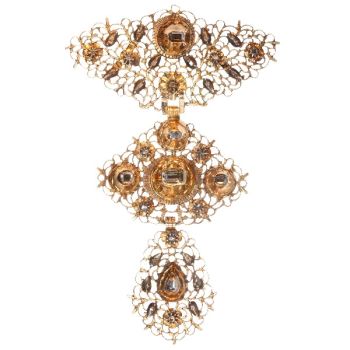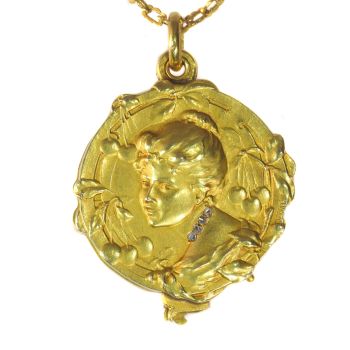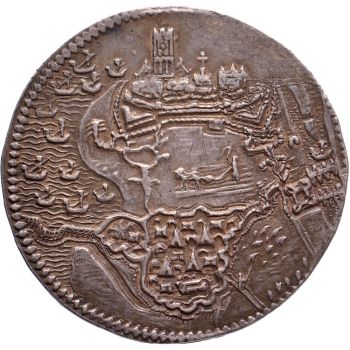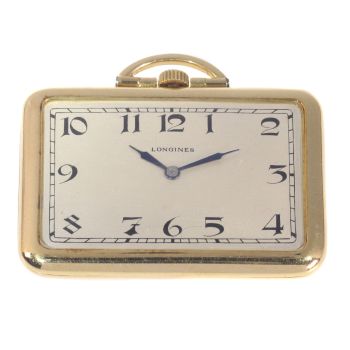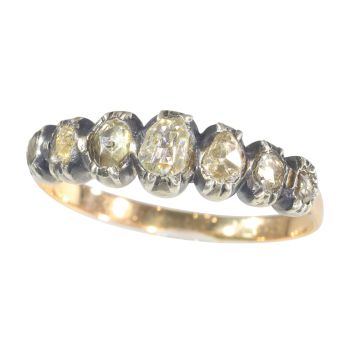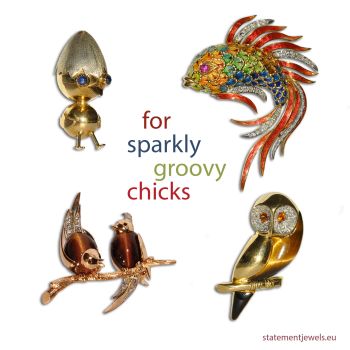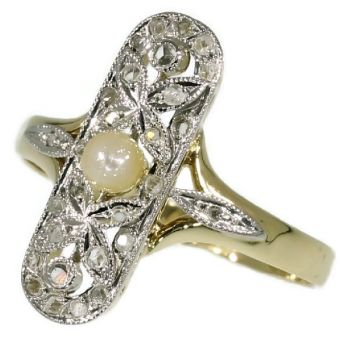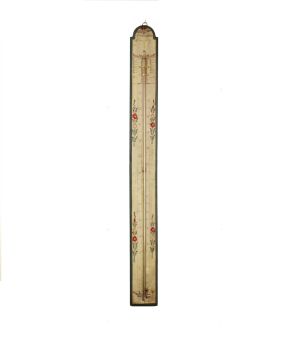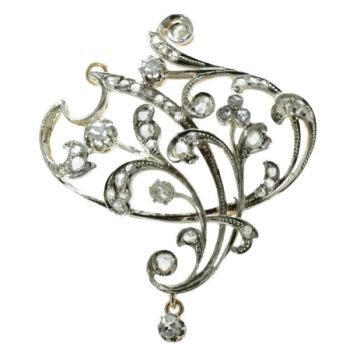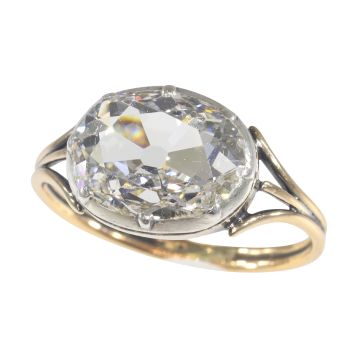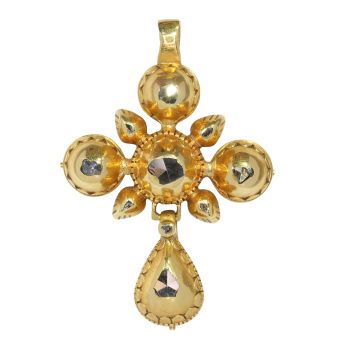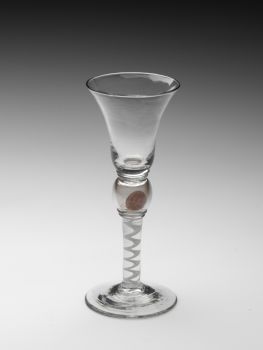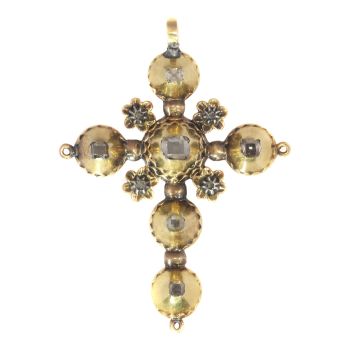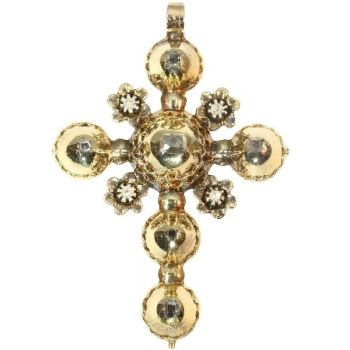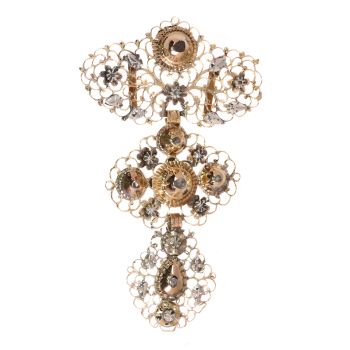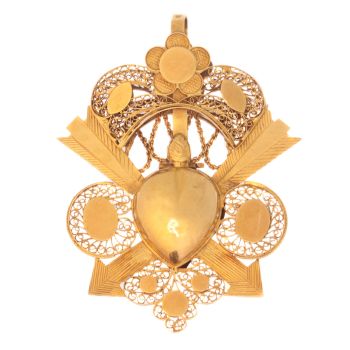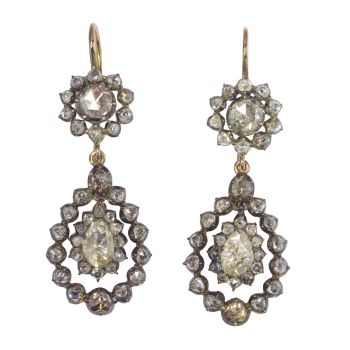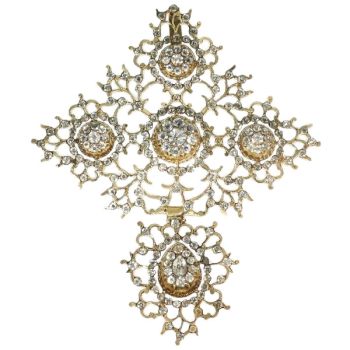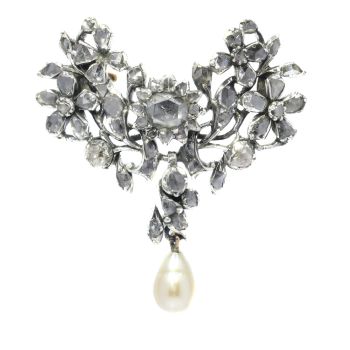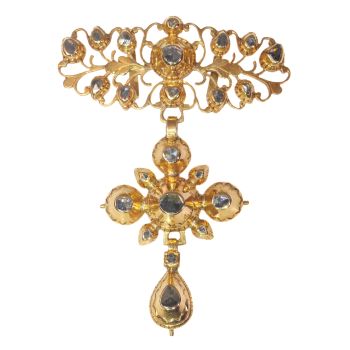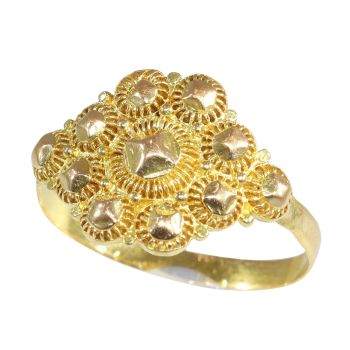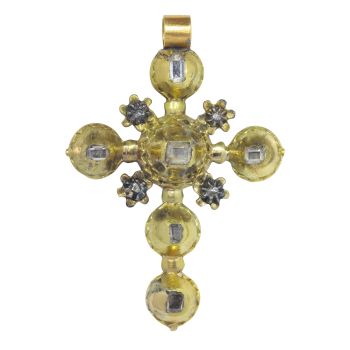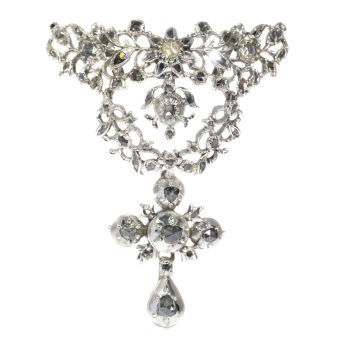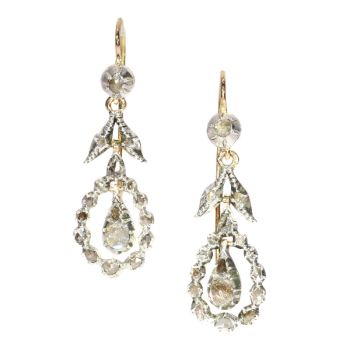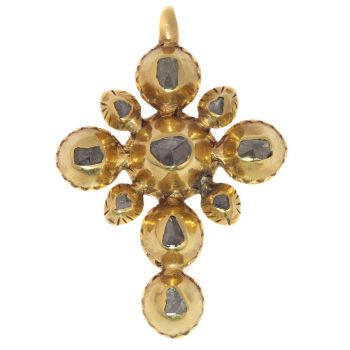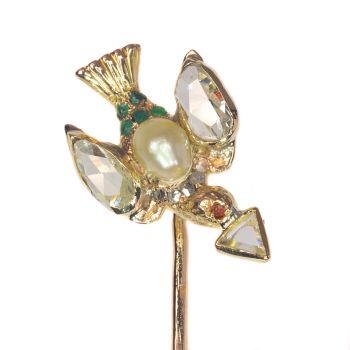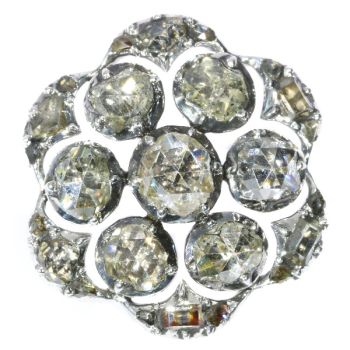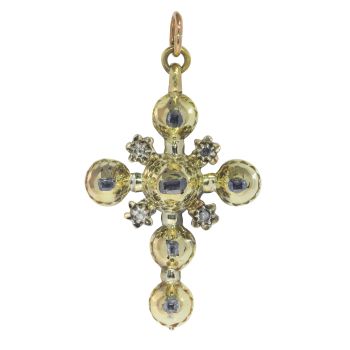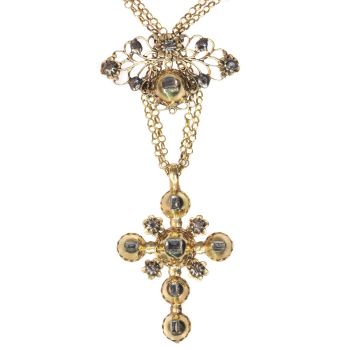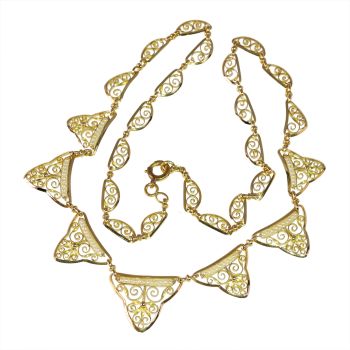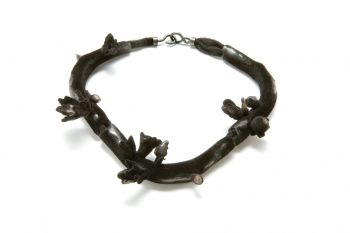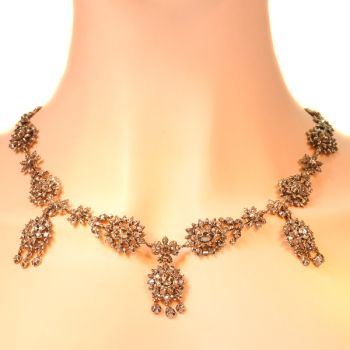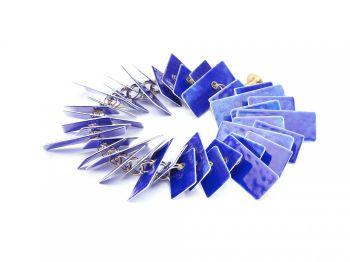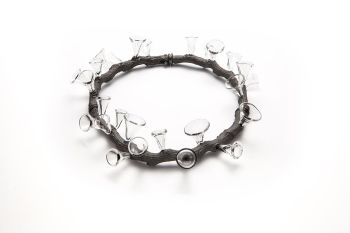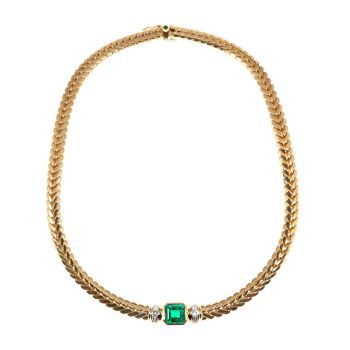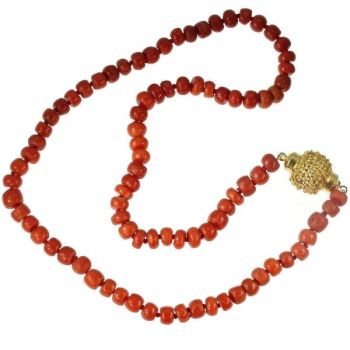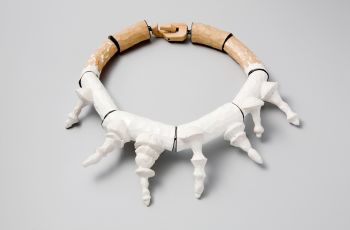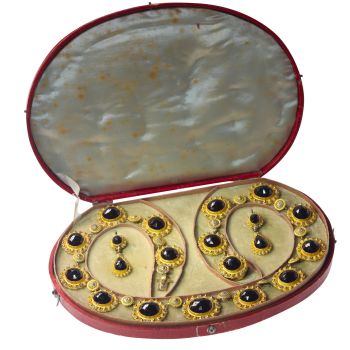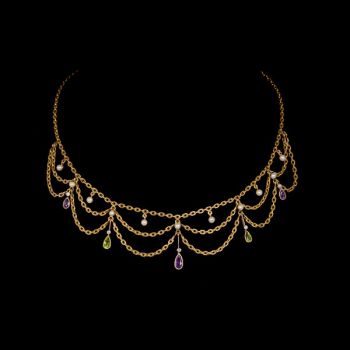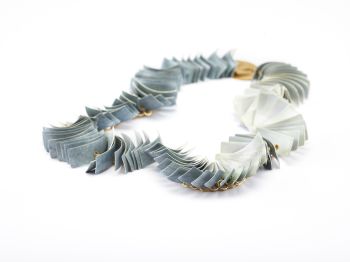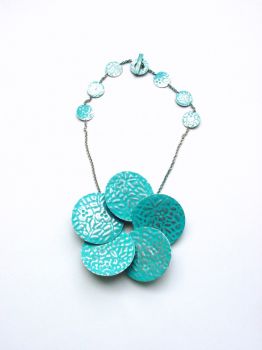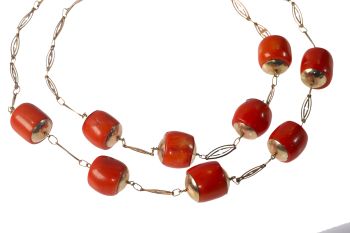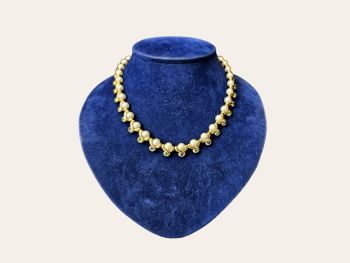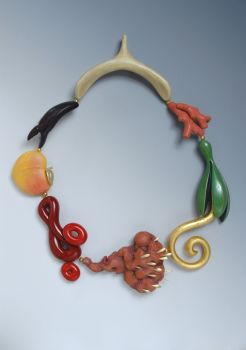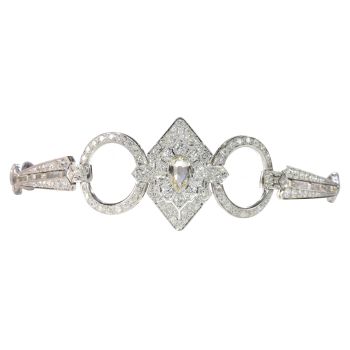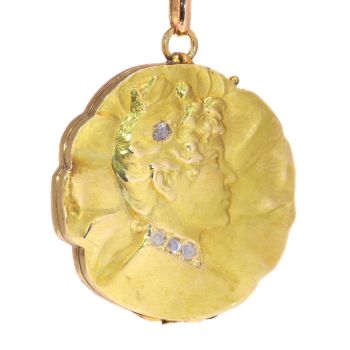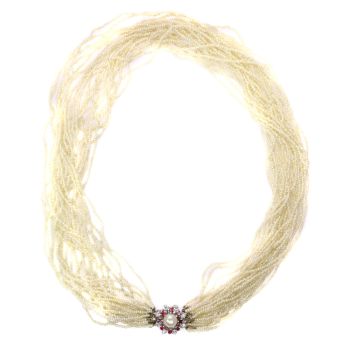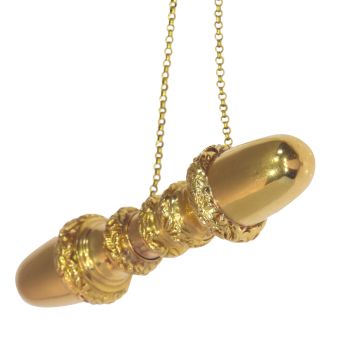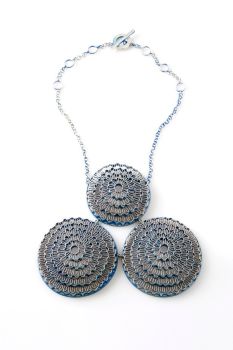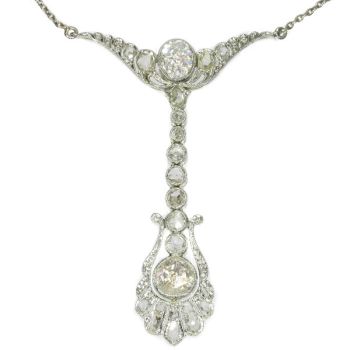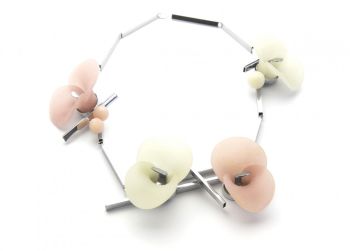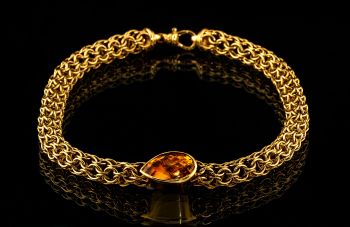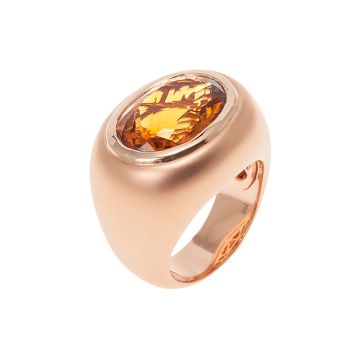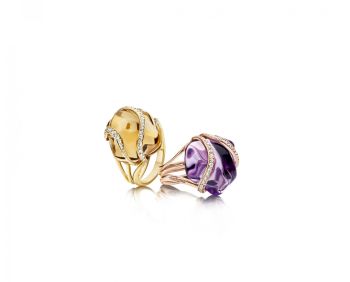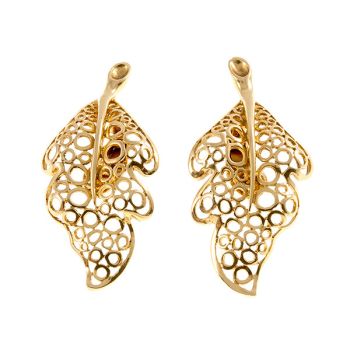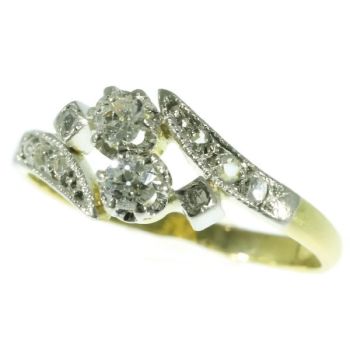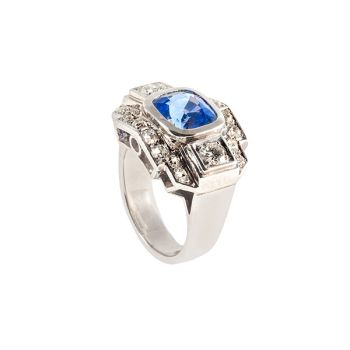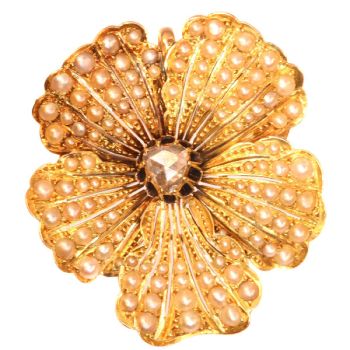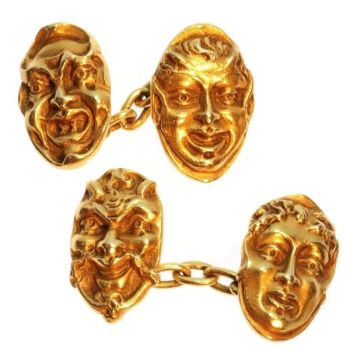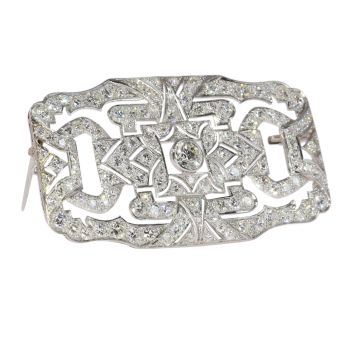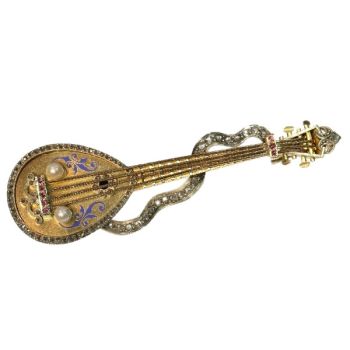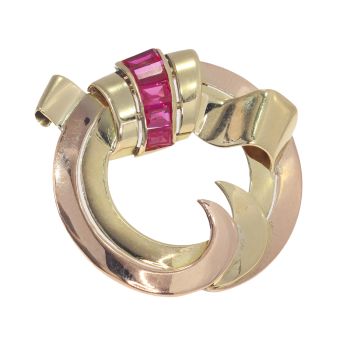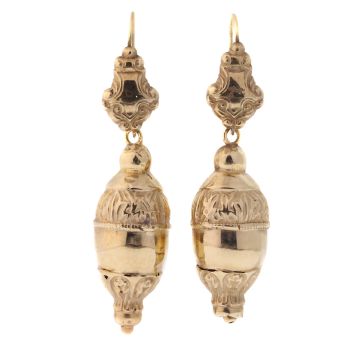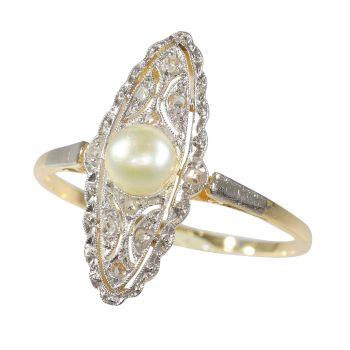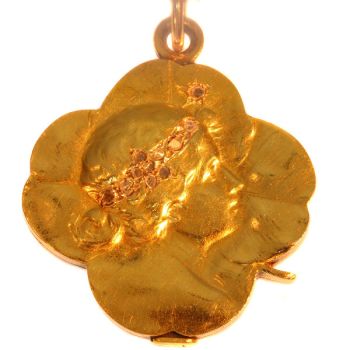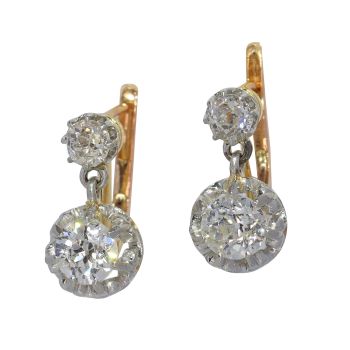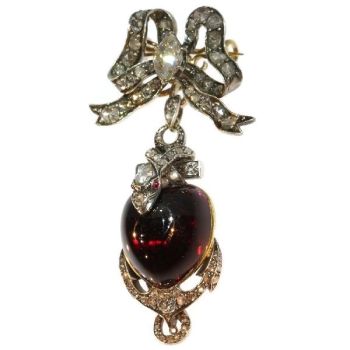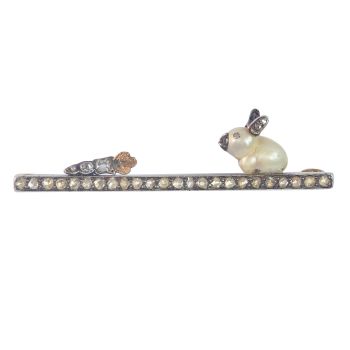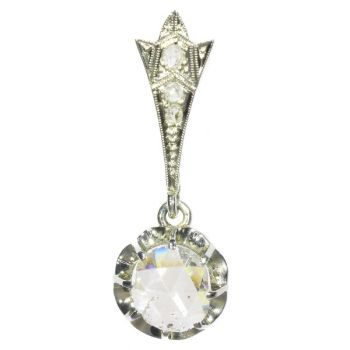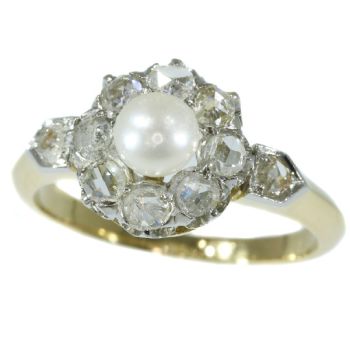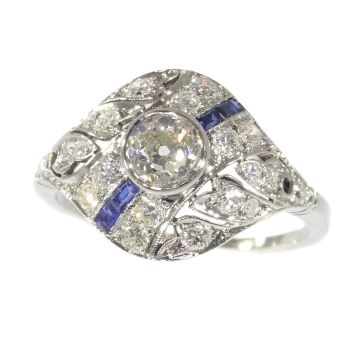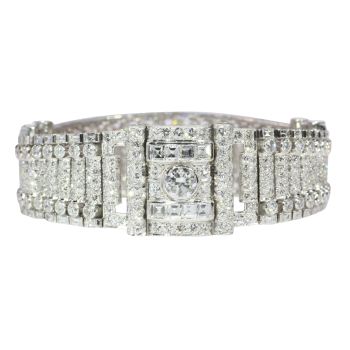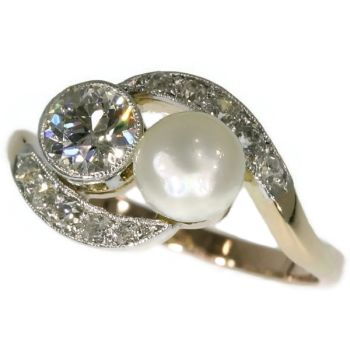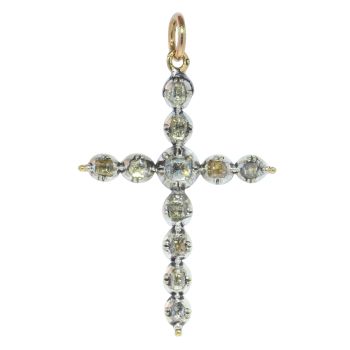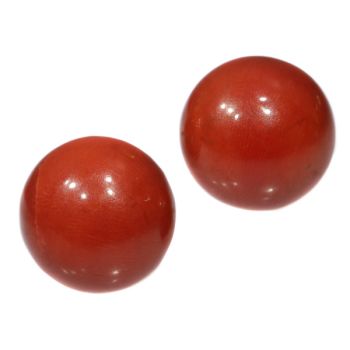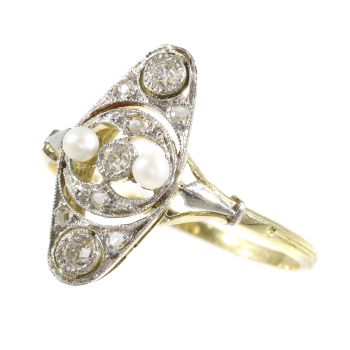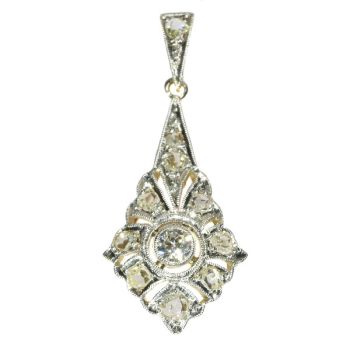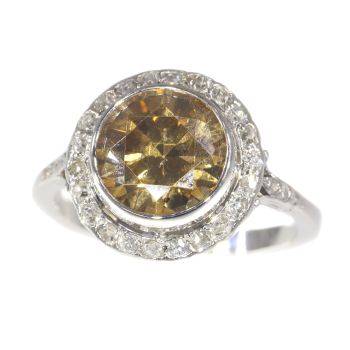Colar antigo de ouro cannetille filigrana trabalhada com 15 grandes pedras citrinas 1820
Artista Desconhecido
CitrineFiligranaOuroGemstone
€ 21.000
Adin Fine Antique Jewellery
- Sobre arte
This fiery 18K yellow gold Georgian necklace of cannetille work folds around your neck as a gentle swirling summer breeze. Every of these 15 degrading rectangular cut citrines gleam out of their granule topped setting fused on a scintillating corona offiligree, entirely composed with tendrils, scrolls, granules and spirals. Although this delicate necklace looks as ethereal as lace, still how clear it is that it will never loose its glory and it will keep on outstanding the test of time.
Antique jewelry object group: necklace
Condition: excellent condition
- (more info on our condition scale)
Country of origin:Although it does not carry any legible control marks we believe this to be of French origin.
Style: Georgian - Georgian style is the name given in most English-speaking countries to the set of styles current between 1720 and 1840. It is eponymous for the first four British monarchs of the House of Hanover—George I of Great Britain, George II of GreatBritain, George III of the United Kingdom, and George IV of the United Kingdom—who reigned in continuous succession from August 1714 to June 1830.
- See also: Georgianor more info on styles
Period: ca. 1820
- (events and facts in 1820)
Material: 18K yellow gold
- (more info on precious metals)
Technique: Filigree (formerly written filigrann or filigrane) is a delicate kind of jewel work made with twisted threads usually of gold and silver or stitching of the same curving motifs. It often suggests lace and French from 1660 to the late 19th century. Itshould not be confused with ajoure jewellery work; while both have many open areas, filigree involves threads being soldered together to form an object and ajoure involves holes being punched, drilled, or cut through an existing piece of metal. (from: Wikipedia)
cannetille: This specific filigree technique, which is the technique of twisting or plaiting a thin gold wire into refined motifs, was popular in traditional Spanish and Portuguese jewellery. It became hugely popular in London and Paris in the 1830’s.
Precious stones: 15 citrines
- (more info on precious stones)
Birthstones: Citrine is the birthstone (or month stone) for November.
- (more info on birthstones)
Hallmarks: No trace.
- (more info on hallmarks)
Dimensions: length 46,50 cm (18,31 inch)
Weight: 72,00 gram (46,30 dwt)
Reference Nº: 14171-0037
Copyright photography: Adin, fine antique jewelry
- Sobre artista
Pode acontecer que um artista ou criador seja desconhecido.
Algumas obras não devem ser determinadas por quem são feitas ou são feitas por (um grupo de) artesãos. Exemplos são estátuas dos tempos antigos, móveis, espelhos ou assinaturas que não são claras ou legíveis, mas também algumas obras não são assinadas.
Além disso, você pode encontrar a seguinte descrição:
•"Atribuído a …." Na opinião deles, provavelmente uma obra do artista, pelo menos em parte
• “Estúdio de…” ou “Oficina de” Em sua opinião um trabalho executado no estúdio ou oficina do artista, possivelmente sob sua supervisão
• "Círculo de ..." Na opinião deles, uma obra da época do artista mostrando sua influência, intimamente associada ao artista, mas não necessariamente seu aluno
•“Estilo de…” ou “Seguidor de…” Na opinião deles, um trabalho executado no estilo do artista, mas não necessariamente por um aluno; pode ser contemporâneo ou quase contemporâneo
• "Maneira de ..." Na opinião deles, uma obra no estilo do artista, mas de data posterior
•"Depois …." Na opinião deles uma cópia (de qualquer data) de uma obra do artista
• “Assinado…”, “Datado…” ou “Inscrito” Na opinião deles, a obra foi assinada/datada/inscrita pelo artista. A adição de um ponto de interrogação indica um elemento de dúvida
• "Com assinatura ….”, “Com data ….”, “Com inscrição ….” ou “Tem assinatura/data/inscrição” na opinião deles a assinatura/data/inscrição foi adicionada por outra pessoa que não o artista
Você está interessado em comprar esta obra de arte?
Related artworks
- 1 - 4 / 12
- 1 - 4 / 24
- 1 - 4 / 24
Artista Desconhecido
Anel retro em platina cravejado de diamantes e safira1940 - 1950
Preço em pedidoLyppens Juweliers
Artista Desconhecido
Enchanting 1870s Vintage Fly Brooch: Victorian Elegance in Gold1870
€ 4.600Adin Fine Antique Jewellery
 Com curadoria de
Com curadoria deDanny Bree
1 - 4 / 24- 1 - 4 / 12

